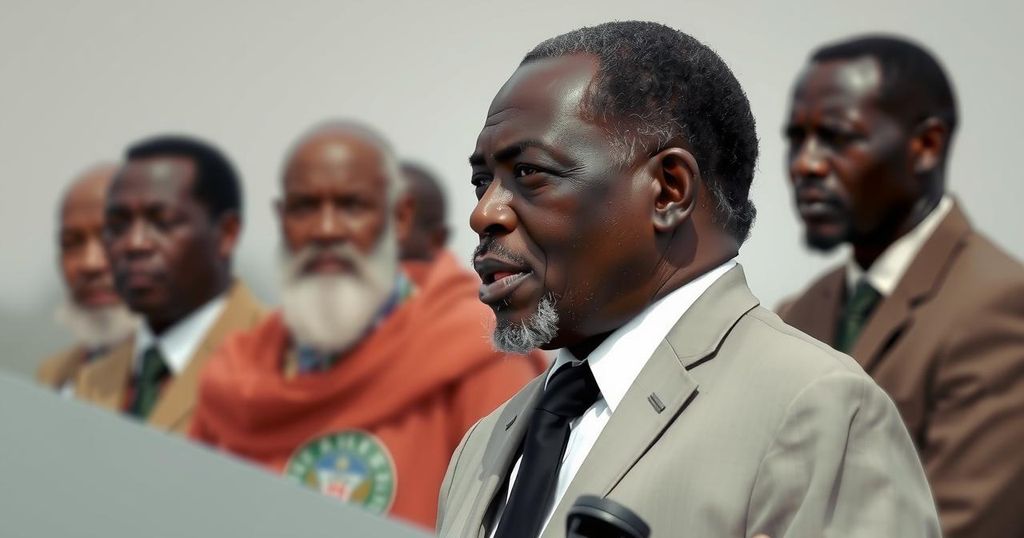The Biden administration has a critical opportunity to address the ongoing crisis in South Sudan by implementing network-based sanctions targeting President Kiir and his kleptocratic regime. Despite previous efforts toward peace, systemic corruption and violence remain rampant, as the leadership evades accountability and postpones democratic elections. A strategic, sanctions-based approach could pave the way for accountability and political change, benefiting the South Sudanese people who seek genuine governance.
The Biden administration, comprised of key figures such as Secretary of State Antony Blinken and National Security Advisor Jake Sullivan, played an instrumental role in the establishment of South Sudan as a new nation in 2011. However, the nation soon spiraled into civil conflict, with President Salva Kiir’s regime marked by systemic corruption and repression. The Biden administration still possesses an opportunity to positively influence South Sudan’s future by implementing network-based sanctions targeting Kiir and his corrupt associates. Without decisive action, the current trajectory of democratic regression and widespread violence is likely to persist.
The situation in South Sudan has deteriorated, primarily due to entrenched corruption and a governance structure that stifles citizen participation and economic stability. Despite the potential for democratic elections, the reality is one of increasing violence and economic decline, exacerbated by the postponement of elections. President Kiir’s regime has shown a blatant disregard for the peace agreement established in 2018, which was intended to facilitate democratic processes, yet has only served to entrench the kleptocracy.
As the international community has rightly realized, elections alone will not rectify the myriad issues plaguing South Sudan. The persistent failure of the peace agreement underscores the urgent need for targeted measures against the regime. In light of this, the United States and its allies should prioritize a strategy that employs network sanctions to dismantle the corrupt systems that have fundamentally undermined the hopes of the South Sudanese populace.
Recent sanctions have largely been ineffective, primarily targeting low-ranking officials who lack the authority to effect change. Instead, sanctions must be strategically directed at Kiir and his inner circle, coupled with a concerted international effort to diminish their power and resources. The establishment of network sanctions could instigate a fragile pathway towards accountability and democracy, contesting the entrenched interests of the ruling elite.
The Financial Action Task Force and the European Union have already begun monitoring South Sudan due to significant anti-money laundering issues. By enhancing pressure on the regime and partnering with the private sector to counteract governmental exploitation of resources, the international community could begin to undermine the systemic dysfunction that has contributed to the cycle of violence and corruption evident in South Sudan.
Ultimately, the urgency of the situation in South Sudan demands deliberate and strategic action. The Biden administration, in its remaining time in office, has the capability to recalibrate international engagement to foster genuine governance and accountability. Addressing the kleptocratic governance structures that have rendered state retrieval necessary should be the primary focus moving forward. The stakes are high, and the window for meaningful change is diminishing rapidly.
South Sudan, the world’s newest country, gained independence from Sudan in 2011. However, it has grappled with civil war and a governance crisis soon after its formation. The ruling regime, led by President Salva Kiir, has been entrenched in corruption, with violent suppression of dissent and an economy in dire straits. The 2018 peace agreement aimed to facilitate elections and political stability, but its implementation has been widely disregarded, leaving citizens yearning for accountability and governance. The role of the United States and its allies becomes crucial in addressing the failures of existing diplomatic efforts through targeted sanctions and international pressure.
In summary, the opportunity for the Biden administration to influence South Sudan’s future positively lies in implementing targeted network sanctions against President Kiir and his corrupt regime. The failed peace agreement and the regime’s refusal to hold credible elections demand a robust international response. By focusing efforts on accountability and dismantling the entrenched kleptocracy, meaningful progress toward peace and democracy may be achievable, ultimately benefiting the South Sudanese population.
Original Source: www.justsecurity.org






